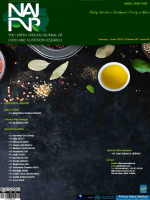Main Article Content
Association of socioeconomic status, dietary behavior, and obesity among Moroccan adults of the region of Rabat: a case-control study
Abstract
Background: The incidence of worldwide obesity is on the increase. Obesity is defined as an excessive accumulation of fat in the body. 39% of adults, aged 18 years and over, were overweight in 2016 and 13% were obese.
Aims: To examine the association of dietary patterns, socioeconomic status, and the body mass index in Moroccan adults.
Methods and Material: This is an analytical case-control study, conducted among obese (n=100) and non-obese (n=150) subjects, aged between 18 and 59 years old, when women represented 60 % of participants. At recruitment, all anthropometric parameters were measured. The body composition was assessed by the use of impedance meter. Dietary habits were assessed using 24 hours’ food recall and food frequency questionnaire. The results were analyzed using the Kolmogorov-Smirnov (K-S) and the chi-squared (χ2-test) test and the percent distribution.
Results: Our results showed that abdominal obesity and overall body fat (BF) percent were much prevalent among the obese group (BF% >30). There was a significant association between the lack of physical activity (p = 0.002), educational level (p = 0.001) and the risk of development of obesity. Concerning the age (p = 0.06) and the gender (p > 0.05) of the participants, there was no difference regarding these parameters and the risk of development of obesity (p > 0.05). A strong relationship between marriage and the development of obesity was found, when 83.90 % of the obese group were married, whereas 73.70 % of the non-obese group were single (p < 0.001). Concerning dietary assessment, our data revealed that the energy consumption of lipids slightly exceeds the recommended target. The major consumed foodstuffs by the obese group were oils and fats.
Conclusions: The adult participants of the region of Rabat have an unbalanced body weight status resulting from an altered dietary behavior and from an altered socioeconomic profile that can lead to various health complications. Further studies are required on a large population aiming to develop effective strategies to fight the rapid increase of obesity.







